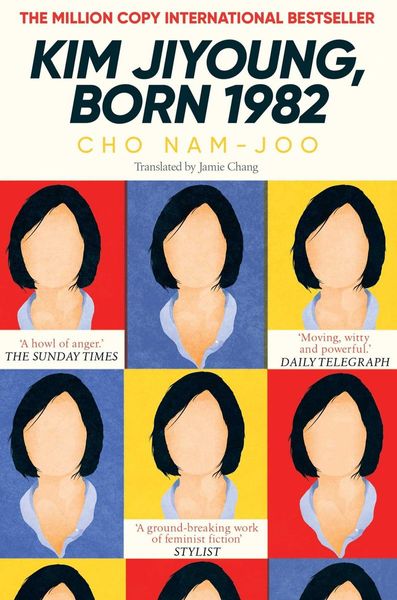
Kim Jiyoung, Born 1982
Kim Ji-young, Born 1982 (Korean: 82년생 김지영) is a novel by Cho Nam-Joo. A former scriptwriter for TV programs, Cho took two months to write the story as according to her, the title character "Kim Ji-young's life isn't much different from the one I have lived. That's why I was able to write so quickly without much preparation." Published by Minumsa in October 2016, it has sold more than 1 million copies as of 27 November 2018, becoming the first million-selling Korean novel since Shin Kyung-sook's Please Look After Mom in 2009.
Reviews
星光@teacups
Max Riley@maxreads
Saffia@saffia
jen@seastruck
Stas@stasreads333
Nastenka@deerprose
Paz@pazingaa
catto fishu@catfish-lo
Danniella@danniellaval
elinabel hidalgo @cookiejar
cee @ceereading
joana ashley@whaliensong
Mira <3@siyamira
Eva Ströberg@cphbirdlady
Camilla@camimix
Liz@lizetteratura
safs@safsreads
Louisa@louisasbookclub
EJ@elijahs
Madrid@kntrolla
armoni mayes@armonim1
Natalia Cerrillo@natoodle
Anjorin Molayo @bookishtems
Bria@ladspter
Highlights
Saffia@saffia
jen@seastruck
jen@seastruck
jen@seastruck
jen@seastruck
jen@seastruck
jen@seastruck
jen@seastruck
jen@seastruck
jen@seastruck
aemouh@aemouh
Aurore@dawnreads
Autumn @rabbit-hearted-reader
Autumn @rabbit-hearted-reader
Autumn @rabbit-hearted-reader
Autumn @rabbit-hearted-reader
Autumn @rabbit-hearted-reader
Lindy@lindy
Lindsay Ornedo@lind_saythename
Lindsay Ornedo@lind_saythename
Lindsay Ornedo@lind_saythename
Lindsay Ornedo@lind_saythename
Lindsay Ornedo@lind_saythename
tuna@tuna9